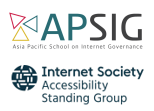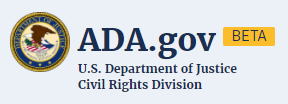On Wednesday December 21 2022 at 09:30-10:30 BST (03:30-04:30 UTC) the Internet Society Accessibility Standing Group presents a webinar ‘Digital Inclusion for Persons with Disabilities to Achieve the Global Goals‘. This is an international webinar with a focus on accessibility in Bangladesh, in cooperation with the Bangladesh Government’s public service innovation unit (a2i).
The WHO estimates that about 15% of the global population lives with some form of disability, and among them, 80% live in low and middle-income countries. They have limited digital footprints due to the lack of internet facilities and the accessibility of the websites, apps, and digital services. Although the Bangladesh Government has set the priorities of digitizing the public services to implement the vision of Digital Bangladesh including making it more inclusive and barrier-free for all, persons with disabilities are still deprived of accessing these public services.
Nowadays, a remarkable number of private services are also provided online, and those are inaccessible to persons with disabilities. Consequently, a significant number of citizens are being deprived of digital services. Therefore, awareness should be created to promote digital inclusion for persons with disabilities, complementing the International Day of Persons with Disabilities.
This event will be in English. Text captions and Bangla Sign Language (BdSL) interpretation will be available.
PROGRAMME 09:30-10:30 BST (03:30-04:30 UTC)
WELCOME
Anir Chowdhury, Policy Advisor, a2i
KEYNOTES
Gunela Astbrink, Chair, Accessibility Standing Group, Internet Society
Vashkar Bhattacharjee, National Consultant – Accessibility, a2i / Country representative G3ICT / Vice Chair, Accessibility Standing Group, Internet Society
PANEL
Swaran Ravindra, Academic, Fiji National University / Leader, Accessibility Standing Group, Internet Society
Azfar Adib, Senior Member, Institute of Electrical and Electronic Engineers (IEEE) / Member, Internet Society Bangladesh Chapter
Nguyen Thi Ngoc Van, Deputy Resident Representative, UNDP Bangladesh
Moderator: Anir Chowdhury, Policy Advisor, a2i
SPECIAL GUEST
Dr. Abu Saleh Mostafa Kamal, Director General, Department of Social Services (DSS)
CHIEF GUEST
NM Zeaul Alam PAA, Senior Secretary, Information and Communication Technology Division
CLOSING REMARKS
Dr. Dewan Muhammad Humayun Kabir, Project Director, a2i (Joint Secretary)
LIVESTREAM http://livestream.com/internetsociety/isoc-asg-bd
AUDIO https://archive.org/download/isoc-asg-bd/isoc-asg-bd.mp3
TRANSCRIPT https://archive.org/download/isoc-asg-bd/asg-bd-TRANSCRIPT.pdf


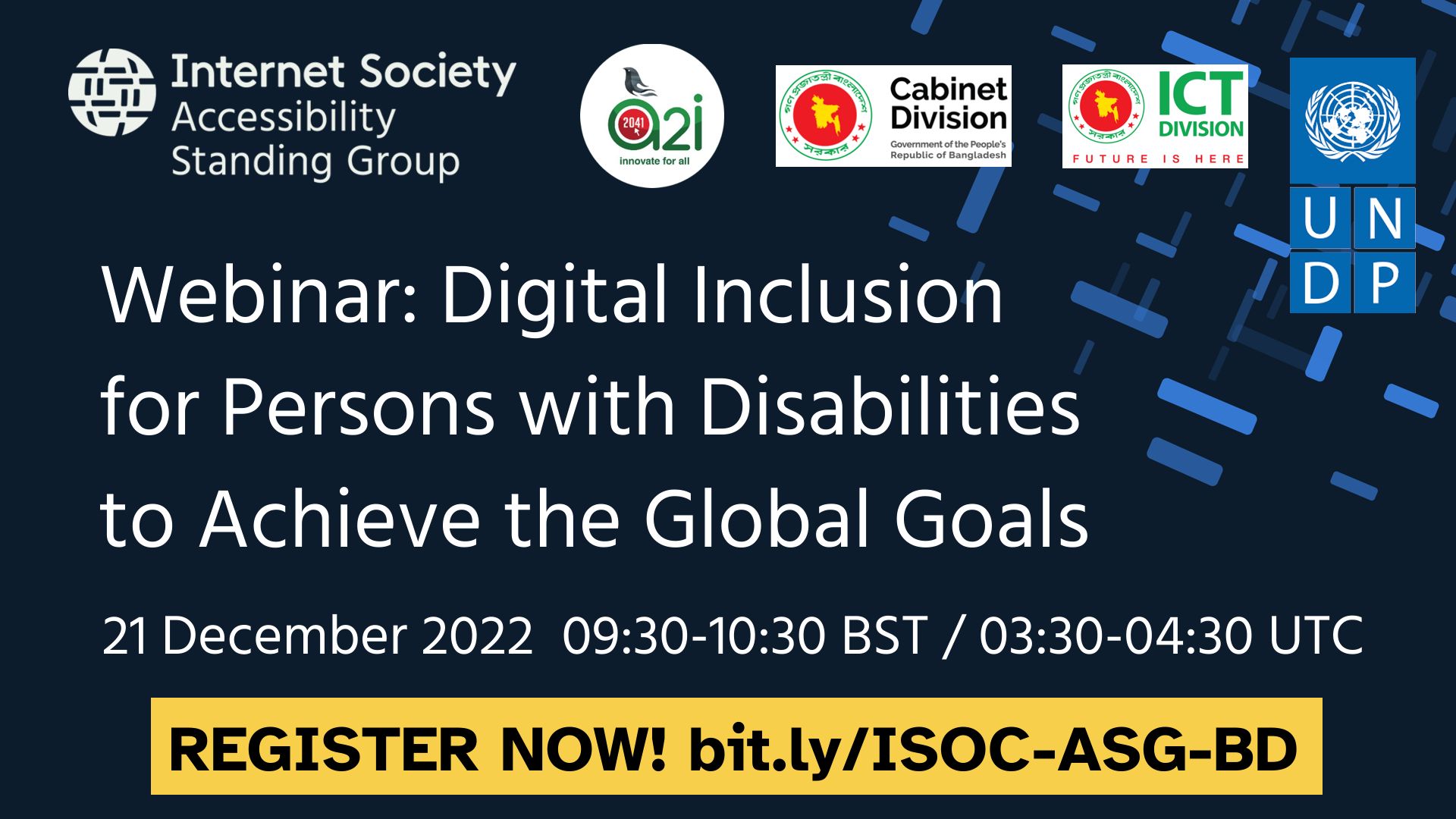
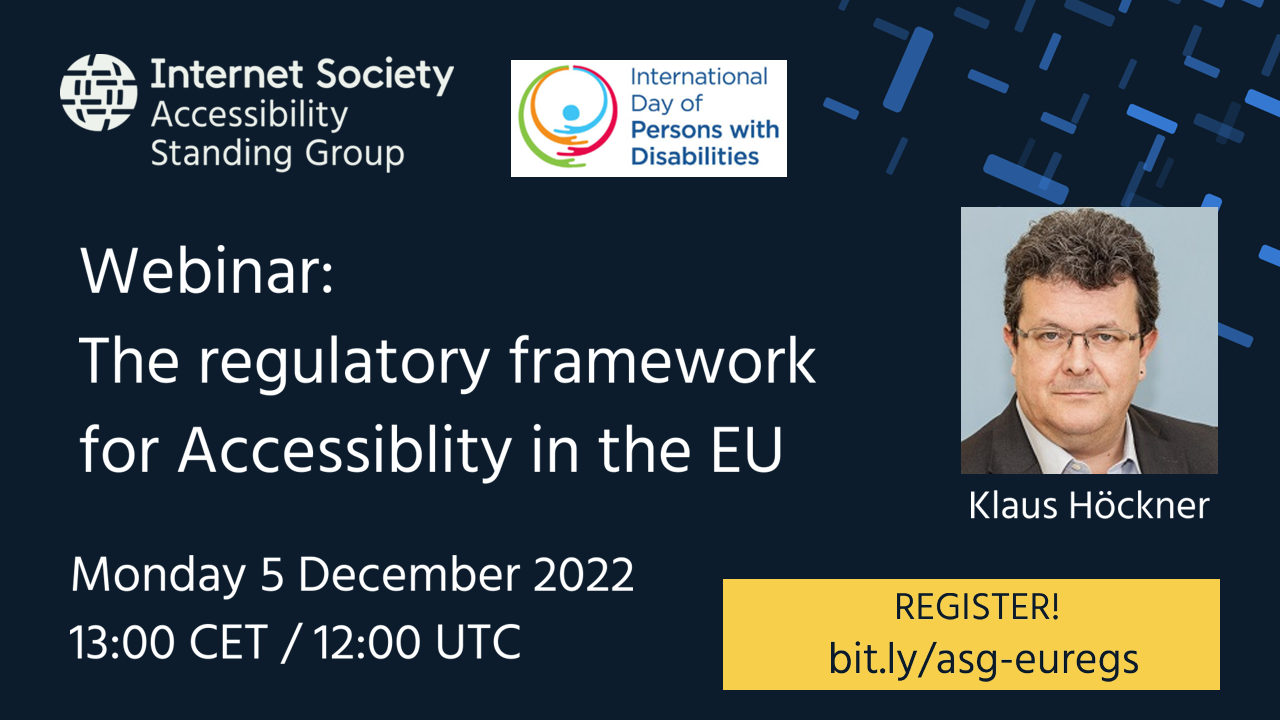
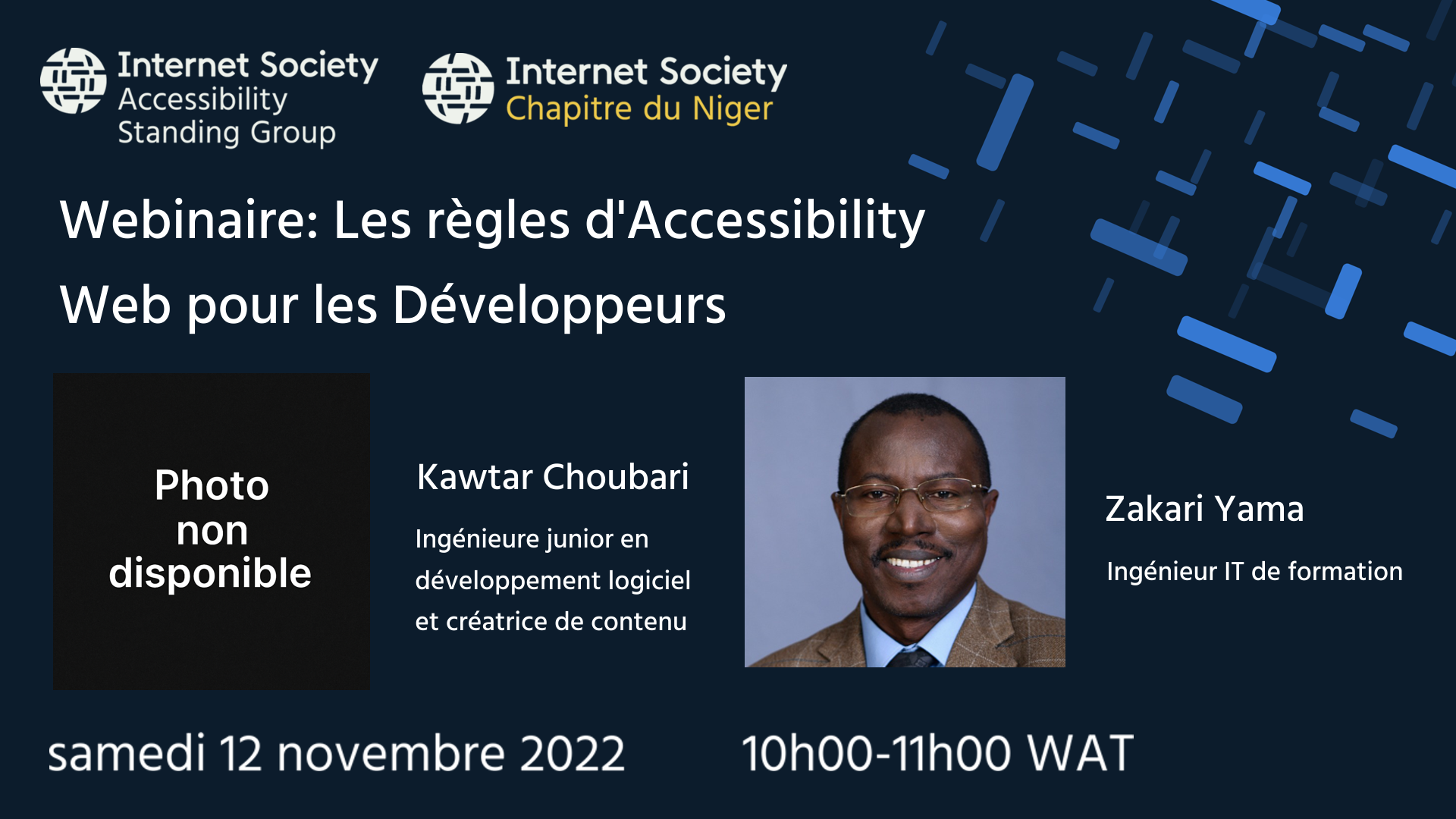
 Ingénieur IT de formation, Zakari a plus de 20ans d’expérience dans le consulting et la gestion de projets digitaux et Web qui lui ont permis de développer, entre autres, une expertise approfondie sur le volet expérience utilisateur. Zakari est également membre de la Leadership Team d’ISOC Accessibility Standing Group
Ingénieur IT de formation, Zakari a plus de 20ans d’expérience dans le consulting et la gestion de projets digitaux et Web qui lui ont permis de développer, entre autres, une expertise approfondie sur le volet expérience utilisateur. Zakari est également membre de la Leadership Team d’ISOC Accessibility Standing Group Kawtar est une ingénieure junior en développement logiciel et créatrice de contenu. Spécialisée dans le développement d’applications web et mobiles, Kawtar a pu utiliser ses expériences et mettre ses connaissances à profit en créant du contenu éducatif sur les réseaux sociaux et en animant des ateliers et des conférences pour les étudiants et les passionnés d’informatique.
Kawtar est une ingénieure junior en développement logiciel et créatrice de contenu. Spécialisée dans le développement d’applications web et mobiles, Kawtar a pu utiliser ses expériences et mettre ses connaissances à profit en créant du contenu éducatif sur les réseaux sociaux et en animant des ateliers et des conférences pour les étudiants et les passionnés d’informatique.
